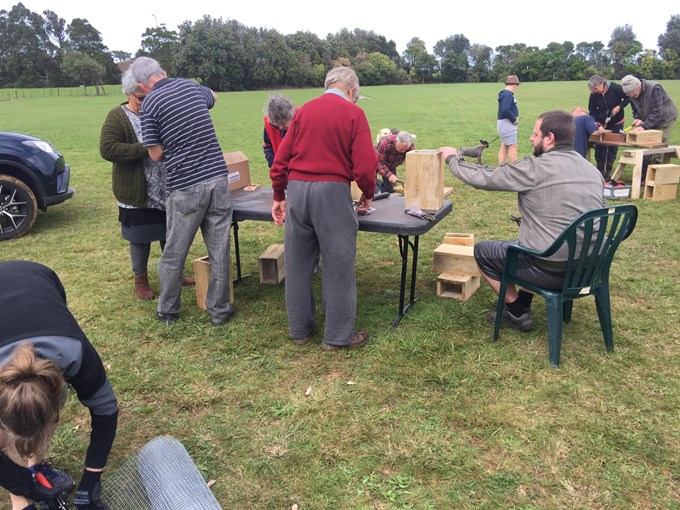Two Franklin groups have won Mayoral Conservation Awards.
Te Korowai o Papatūānuku is a landscape-scale revegetation project on the Āwhitu Peninsula and CREST is a shorebird protection group covering Clarks, Rangiriri, Ellets beaches, Seagrove and Taihiki Estuary.
The annual awards recognise the commitment of those who give their time to play an environmental role, and Mayor Phil Goff congratulates not only the winners but all nominees.
"Our conservation volunteers and community groups do an incredible job protecting Auckland’s unique natural environment. They care for and restore ecosystems, protect native plant and animal species and help make our city a greener, more sustainable place.”
Franklin Local Board chair Andy Baker says the area has many active volunteer groups achieving great things.
“There is any number of groups that would have been worthy winners and as a board, we want the winners but also thank all those who stand up for the environment by serving on committees, getting their hands dirty at planting days, or setting and clearing trapping lines.
“Nothing is more important to us than the environment. We have only one and it’s always gratifying to see so many Franklin people willing to do their bit.”
The awards are judged in three categories.
CREST was the winner in the innovation space for its work with iwi Ngāti Tamaoho to rid their area of pests to allow native wildlife to flourish and to protect wading bird sites along the southern Manukau Harbour.
The area is the most important harbour in New Zealand for wading birds, with 27 species present, 17 of them in decline or threatened with extinction.
Te Korowai o Papatūānuku was a joint winner with the Waiheke Marine Project in the collaboration category.
The project unites Āwhitu Peninsula Landcare and Ngāti Te Ata under a plan that aims to plant 250,000 eco-sourced plants on the Āwhitu over the next four years to restore streams, protect wetlands, connect remnant forests, and enhance culturally significant sites.
Despite Covid, it provided 40,000 trees in its first year, creating new jobs along the way. Archaeological engagement has brought an understanding of the peninsula’s heritage and history so landowners can plant for the future while protecting significant sites.
The Schools and Youth section was won by Āotea Great Barrier school’s marine project, which brings children from the island’s three schools together to research the effects of sediment and overfishing on the marine environment in a project that also took out the Penny Hulse Supreme Environmental Award.


